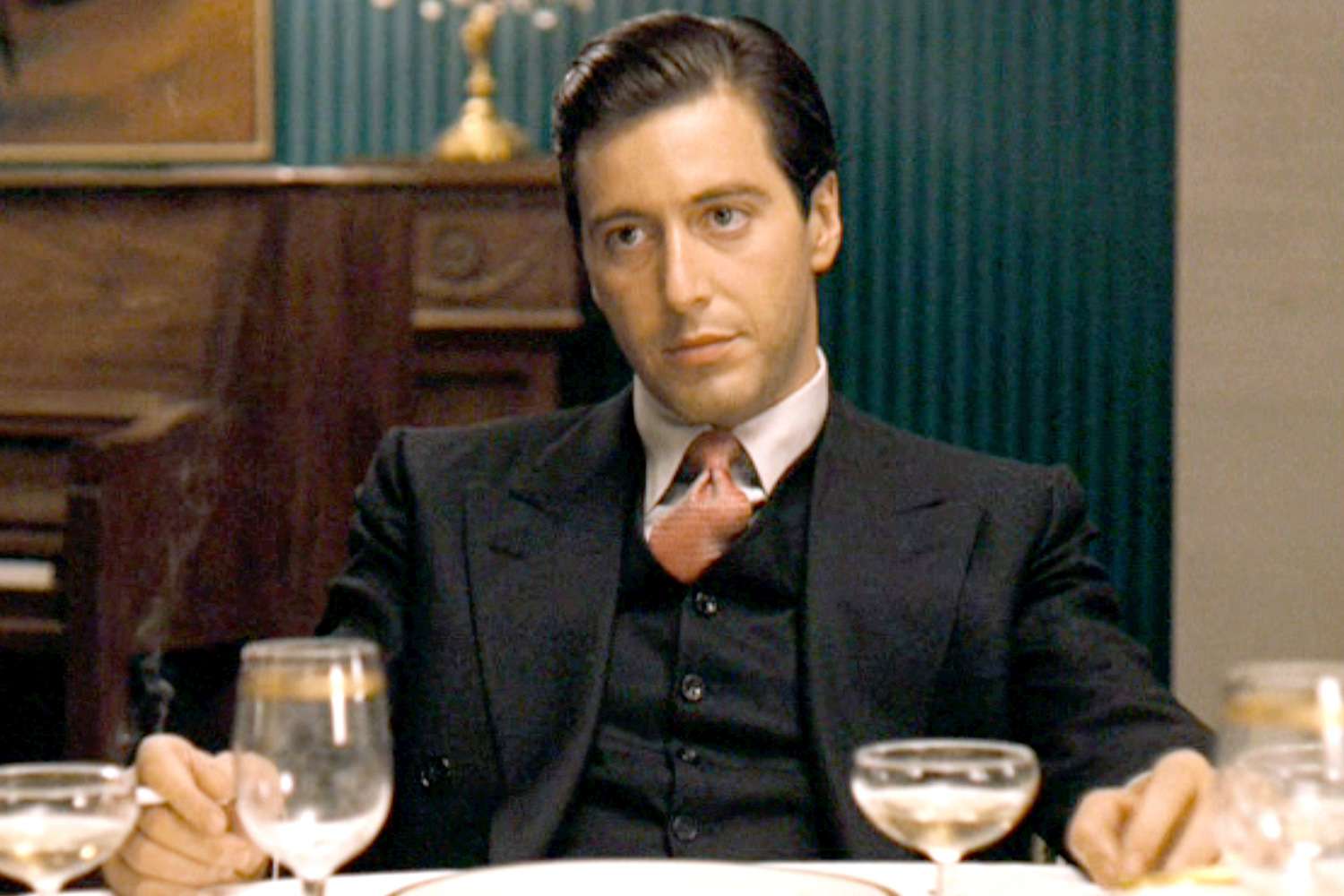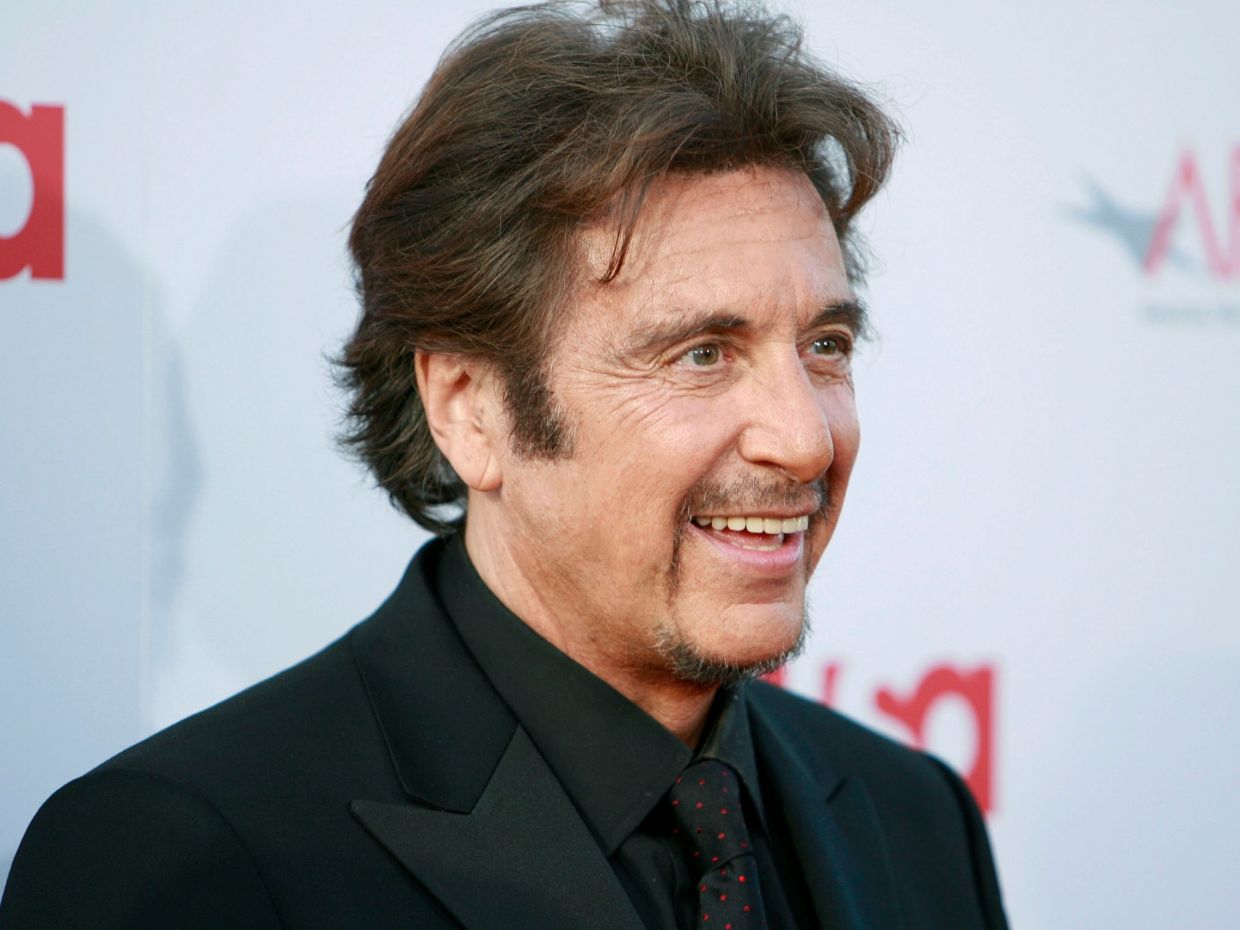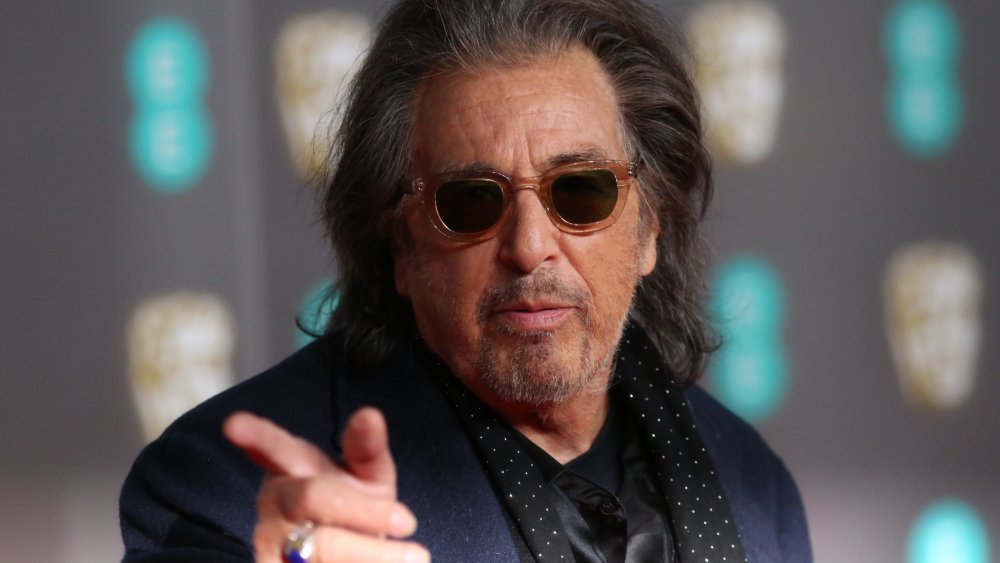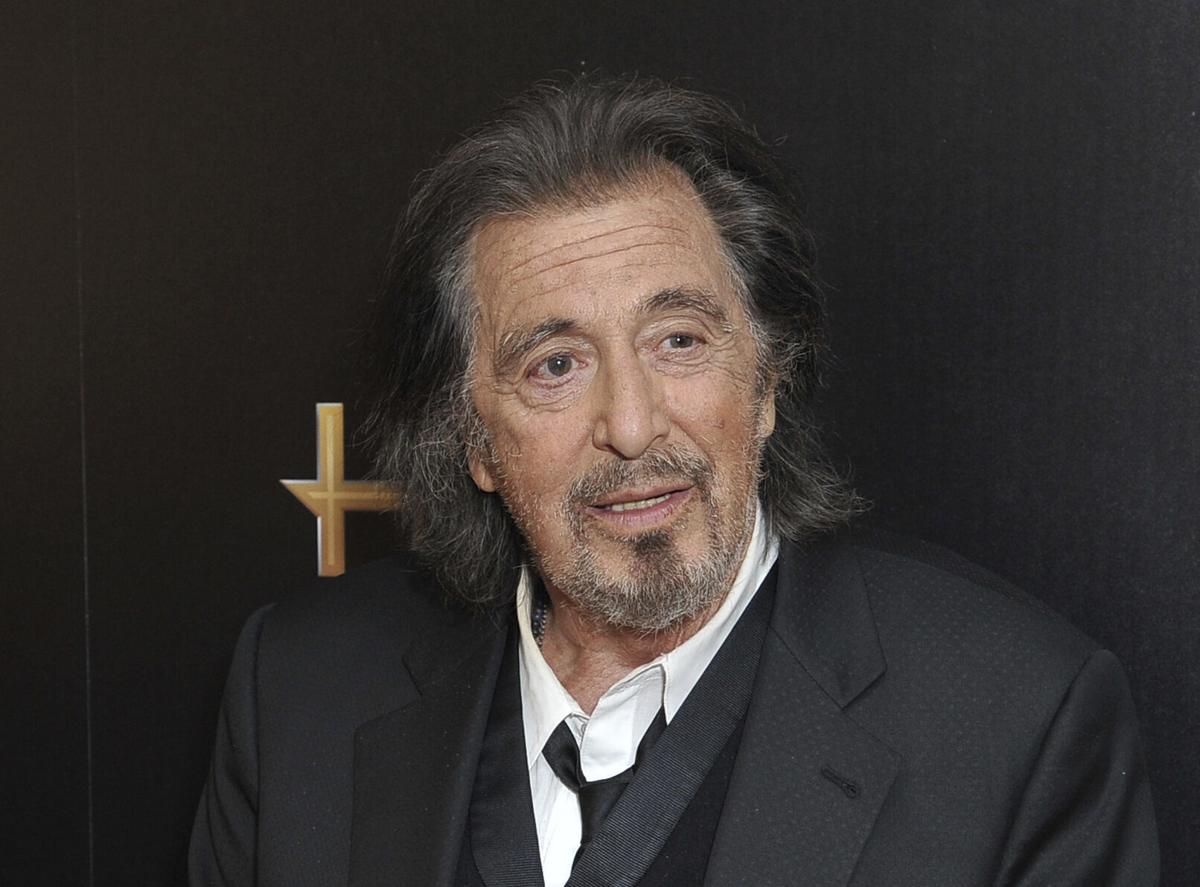What Makes Al Pacino Such A Legendary Actor?
Explore the legendary career of Al Pacino, an iconic figure in Hollywood known for his captivating performances. From Michael Corleone in 'The Godfather' to Tony Montana in 'Scarface,' delve into the enigmatic world of this celebrated actor's journey through the silver screen and stage.
Author:Emily SanchezReviewer:James PierceJan 08, 20249.4K Shares163.7K Views
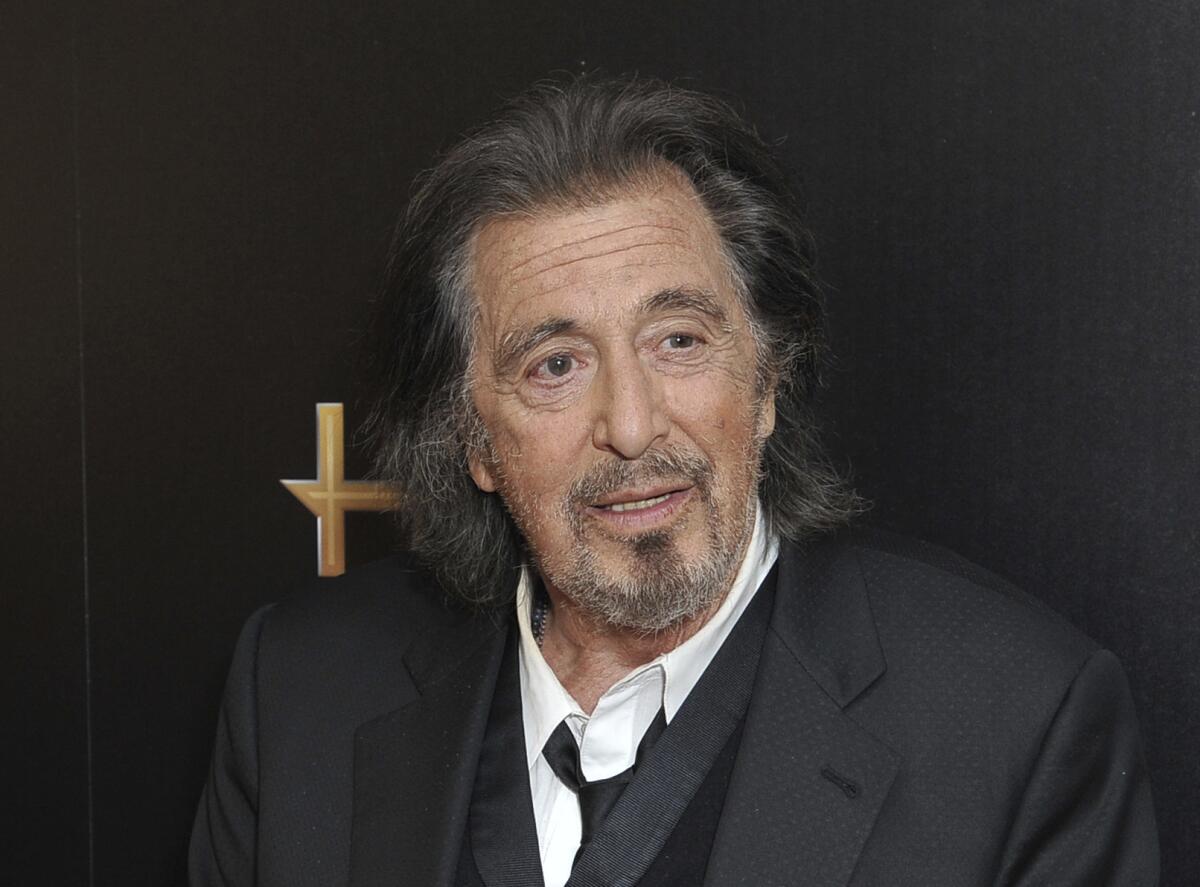
In the illustrious tapestry of Hollywood legends, few names shine as brightly as Al Pacino. Born on April 25, 1940, in East Harlem, this iconic actor has traversed the realms of cinema and theater with a charisma and intensity that are uniquely his own.
Over the span of more than five decades, Al Pacino has not only become synonymous with masterful performances but has also left an indelible imprint on the very soul of storytelling through his characters. From the mean streets of New York to the grand stages of Broadway, Pacino's journey is a testament to the transformative power of talent and the enduring allure of the silver screen.
Quick Facts About Al Pacino
| Name | Alfredo James Pacino |
| Birthday | April 25, 1940 |
| Profession | Actor |
| Net worth | $120 million |
Early Life Of Al Pacino
Alfredo James Pacino, born on April 25, 1940, in the vibrant city of New York, emerged from humble beginnings into a prolific acting career that would redefine cinematic excellence. Born to Italian immigrants from Sicily, his childhood was marked by the separation of his parents when he was just a toddler. Following their split, Pacino's father ventured westward to California, leaving him in the care of his mother and grandparents in the Bronx.
Despite a somewhat reserved demeanor during his early years, Pacino's path took an unexpected turn during his adolescence as he discovered a profound interest in acting. This passion paved the way for his acceptance into the High School of Performing Arts. However, academia proved to be a challenge for the budding actor, leading to his eventual departure from school at the tender age of 17.
Post-academic life saw Pacino navigating through an array of jobs before taking a pivotal leap toward his dreams. In 1959, he relocated to Greenwich Village, where the bohemian spirit fueled his aspirations to become an actor. Under the tutelage of the Herbert Berghof Studio, Pacino immersed himself in the study of theater, landing roles in off-Broadway productions. Notably, his performance in the 1963 play Hello, Out There by William Saroyan marked a significant stride in his budding career.
The turning point came in 1966 when Pacino gained admission to the prestigious Actors Studio, studying under the guidance of the legendary Lee Strasberg. This pivotal experience propelled him into the limelight, leading to noteworthy projects such as the 1969 Broadway production of Does a Tiger Wear a Necktie?, an achievement that earned him a coveted Tony Award. His on-screen journey began to unfold with a compelling role in the 1969 film Me, Natalie, marking the inception of Pacino's indelible imprint on the cinematic landscape.
Struggling Actor
In the relentless pursuit of his craft, Pacino faced rejection as he tirelessly auditioned for acting companies. The struggle persisted until a beacon of hope emerged in the form of HB Studio. Here, the seasoned teacher Charlie Laughton recognized the raw potential in Pacino and assumed the role of mentor and best friend, guiding him through the labyrinth of artistic growth.
Four transformative years at HB Studio laid the foundation for Pacino's ascent to greatness. The pivotal moment arrived when he secured admission to the revered Actors Studio, an enclave of the nation's foremost actors, playwrights, and theater directors. Under the influential tutelage of method acting pioneer Lee Strasberg, Pacino found himself on an artistic odyssey that would shape the trajectory of his career.
“„The Actors Studio meant so much to me in my life. Lee Strasberg hasn't been given the credit he deserves... Next to Charlie, it sort of launched me. It really did. That was a remarkable turning point in my life. It was directly responsible for getting me to quit all those jobs and just stay acting.- Al Pacino
In 1967, Al Pacino added another chapter to his burgeoning career by gracing the stage of a playhouse in Boston, captivating audiences in the production "Awake and Sing!" This marked a turning point, not only artistically but also financially, as Pacino earned a then career-high of $125 per week from the role.
The following year, 1968, witnessed Pacino's star turn in Israel Horovitz's play "The Indian Wants the Bronx," a performance that garnered attention far beyond the stage. Entertainment manager Martin Bergman, captivated by Pacino's talent, promptly signed the emerging actor, sparking a collaboration that would define decades to come. Bergman's foresight and persuasion would later propel Pacino into iconic roles in films like The Godfather, Serpico, and Dog Day Afternoon, solidifying his status as one of the preeminent actors on the global stage.
Success Of Al Pacino Movies
'The Godfather'
Al Pacino, a name synonymous with acting brilliance, embarked on an illustrious cinematic journey that would redefine the landscape of Hollywood. While his role in 'The Godfather' (1972) catapulted him to international acclaim, it was a lesser-known gem, 'The Panic in Needle Park' (1971), that first showcased Pacino's transformative prowess.
In this riveting exploration of addiction, Pacino's portrayal of a heroin addict caught the discerning eye of Francis Ford Coppola, the visionary director behind 'The Godfather.' Despite considering Hollywood heavyweights like Robert Redfordand Jack Nicholsonfor the role of Michael Corleone, Coppola took a gamble on the relatively unknown Pacino. The gamble paid off in cinematic gold, as 'The Godfather' emerged as a monumental success in 1972, solidifying its place among the greatest films of all time.
Pacino's Michael Corleone was part of an ensemble cast that included Marlon Brando, James Caan, Robert Duvall, and Diane Keaton. The film dominated the 1973 Academy Awards, securing Oscars for Best Picture, Best Actor (Brando), and Adapted Screenplay. Although Pacino, Caan, and Duvall earned supporting actor nominations, the lack of recognition in the lead actor category led Pacino to boycott the event, a testament to his unwavering commitment to his craft.
More Acclaim With 'Serpico'
Following the triumph of 'The Godfather,' Pacino's star ascended rapidly. In 'Serpico' (1974), he delved into the true story of Frank Serpico, an undercover police officer who exposed corruption in the NYPD during the 1960s. The film not only garnered critical acclaim but also marked another milestone in Pacino's journey of accolades.
'The Godfather: Part II,' 'Dog Day Afternoon'
The cinematic feast continued with 'The Godfather: Part II' (1974), where Pacino reprised his role alongside Robert De Niro, earning equal accolades to its predecessor. In 1975, he captivated audiences in 'Dog Day Afternoon,' portraying John Wojtowicz, a man attempting to rob a bank to fund his boyfriend's sex change - an unconventional role that showcased Pacino's versatility.
While the box-office stumble 'Bobby Deerfield' interrupted the string of successes, Pacino swiftly rebounded with the legal drama '…And Justice for All' (1979), once again securing an Academy Award nomination.
'Scarface'
After the zenith of the 1970s, Al Pacino faced a cinematic roller coaster during the 1980s. While the decade introduced the unforgettable Tony Montana in 'Scarface' (1983), directed by Brian De Palma, other ventures like 'Cruising' (1980), 'Author! Author!' (1982), and 'Revolution' (1985) marked commercial and critical downturns.
In the midst of this, Pacino found solace and success on the stage, earning a Drama Desk Award nomination for 'American Buffalo' (1983) and accolades for his portrayal of Marc Antony in a New York Shakespeare Festival production of 'Julius Caesar' (1988).
'Dick Tracy,' 'Scent Of A Woman'
In 1989, Pacino made a triumphant return to the screen with the thriller 'Sea of Love,' reigniting his star power. The '90s witnessed a resurgence, with noteworthy roles in 'The Godfather: Part III' and 'Dick Tracy' (1990), earning him his first Academy Award nomination in over a decade.
The early '90s further showcased Pacino's versatility with critically acclaimed performances in 'Frankie and Johnny' (1991) and 'Carlito's Way' (1993). His stellar portrayal of a blind man in 'Scent of a Woman' (1992) not only brought him his first Academy Award but also secured a nomination for his supporting role in 'Glengarry Glen Ross' (1992).
'Donnie Brasco,' 'Any Given Sunday'
The latter half of the '90s ushered in a new era of Pacino's career. From Michael Mann's 'Heat' (1995) to the enthralling 'Donnie Brasco' (1997), the supernatural thriller 'The Devil's Advocate' (1997), and Oliver Stone's football classic 'Any Given Sunday' (1999), Pacino demonstrated his enduring relevance and versatility. His role in the Academy Award-winning 'The Insider' (1999) further solidified his status as an acting powerhouse.
As the '90s drew to a close, Pacino not only conquered the silver screen but also delved into the realm of directing, writing, and performing in the documentary 'Looking for Richard,' an exploration of William Shakespeare’s Richard III. In the face of the decade's tumultuous turns, Pacino emerged not just as a survivor but as a seasoned maestro, continuing to captivate audiences with his timeless artistry.
'Insomnia,' 'Angels In America'
Entering the new millennium at the age of 60, Al Pacino showcased an unwavering commitment to his craft. In 2002, his cinematic journey continued with a quartet of films, including the Christopher Nolan thriller 'Insomnia' and the intriguing mix of 'People I Know,' 'S1m0ne,' and 'The Recruit.' Age proved to be a mere number as Pacino embraced challenging roles and eclectic genres.
The year 2003 witnessed a triumphant turn for Pacino as he clinched an Emmy Award for his compelling role in the adaptation of Tony Kushner's play, 'Angels in America.' Undeterred, he further explored his love for classical literature by starring in a film version of Shakespeare's 'The Merchant of Venice' in 2004.
'Ocean's Thirteen'
In 2007, Pacino added his legendary presence to the star-studded ensemble of the blockbuster hit 'Ocean’s Thirteen.' Not one to rest on his laurels, he released the DVD box set 'Pacino: An Actor’s Vision,' showcasing the depth of his cinematic journey. Collaborating once again with De Niro in the 2008 cop drama 'Righteous Kill,' Pacino continued to captivate audiences with his on-screen charisma.
'Phil Spector'
The ensuing decade witnessed Pacino's diverse range, from portraying Jack Kevorkian in the Emmy-winning TV movie 'You Don’t Know Jack' (2010) to revisiting David Mamet's 'Glengarry Glen Ross' in a 2012 Broadway production. His collaboration with Mamet continued with the 2013 TV film 'Phil Spector,' a portrayal of the famously troubled musical producer.
Venturing into indie projects like 'Manglehorn' (2014) and 'Danny Collins' (2015), Pacino's cinematic palette expanded. In the latter, he played a rock star on a poignant quest, sharing the screen with Annette Bening, Jennifer Garner, and Christopher Plummer.
'Paterno,' 'Once Upon A Time,' 'The Irishman'
Pacino's return to the spotlight was marked by compelling roles in films like 'The Pirates of Somalia' and 'Hangman' in 2017. However, it was his portrayal of the titular Penn State football coach in 'Paterno' (2018) that added another layer to his storied career.
A rendezvous with Quentin Tarantino's 'Once Upon a Time in Hollywood' (2019) preceded the much-anticipated reunion with Martin Scorsese and Robert De Niro in 'The Irishman.' The latter role earned Pacino his ninth Academy Award nomination, a testament to his enduring brilliance.
In February 2020, Pacino made a triumphant return to the small screen with Amazon's 'Hunters.' As the leader of a group of vigilantes combating a Nazi revival in 1970s America, Pacino's television venture further solidified his status as a masterful performer willing to explore new frontiers.
Awards And Accolades Of Al Pacino
Al Pacino, one of the most celebrated actors in the history of cinema, has garnered a plethora of awards and accolades throughout his illustrious career. From his groundbreaking performances on the stage to his iconic roles on the silver screen, Pacino's talent has been recognized by both peers and critics alike.
- Academy Awards - Pacino's journey to cinematic excellence has been adorned with Academy Awards, the most prestigious honor in the film industry. He received his first nomination for Best Supporting Actor in "The Godfather" (1972). Later, he clinched the coveted Best Actor Oscar for his riveting portrayal of a blind man in "Scent of a Woman" (1992). Over the years, he has accumulated multiple nominations, solidifying his status as one of the industry's greatest talents.
- Emmy Awards - Pacino seamlessly transitioned from the big screen to television, earning acclaim for his role in the adaptation of Tony Kushner's play "Angels in America" (2003). This venture into television earned him an Emmy Award, showcasing his versatility and mastery beyond the cinematic realm.
- Golden Globes - The Hollywood Foreign Press Association has consistently acknowledged Pacino's brilliance through the Golden Globe Awards. Notable wins include Best Actor in a Motion Picture - Drama for "Scent of a Woman" (1993) and the Cecil B. DeMille Award for lifetime achievement in 2001.
- BAFTA Awards - The British Academy of Film and Television Arts (BAFTA) has also paid tribute to Pacino's global impact on cinema. He received the BAFTA Fellowship, the organization's highest honor, in 2003, underscoring his profound influence on the international film landscape.
- Tony Awards - Pacino's contributions to the world of theater have not gone unnoticed. His work on Broadway, including roles in "Does a Tiger Wear a Necktie?" (1969) and "American Buffalo" (1983), earned him Tony Award nominations, showcasing his versatility across various performing arts mediums.
- Screen Actors Guild Awards - The Screen Actors Guild (SAG) Awards have consistently acknowledged Pacino's contributions. His role in "The Irishman" (2019) earned him a nomination, highlighting the respect and recognition he commands among his fellow actors.
- AFI Life Achievement Award - In 2007, the American Film Institute (AFI) bestowed upon Pacino the Life Achievement Award, recognizing not just his performances but his enduring impact on the entire film industry.
- Honorary Awards - In addition to competitive awards, Pacino has received numerous honorary awards, including the Cecil B. DeMille Award at the Golden Globes and the Kennedy Center Honors in 2016, further underscoring the profound and lasting impact of his contributions to the arts.
Al Pacino's Net Worth And Salary
The legendary Al Pacino stands as an icon, with his net worth soaring to an impressive $120 million. With a career that has gracefully unfolded over more than five decades, Pacino is not merely an actor; he is a maestro, considered by many as one of the greatest in the history of cinema. This luminary figure has adorned his illustrious journey with an Academy Award, two Tony Awards, and two Primetime Emmy Awards, a testament to his multifaceted brilliance.
Al Pacino's early career showcased a passion for his craft that went beyond financial considerations. Earning $35,000 for his breakthrough role in the first installment of "The Godfather" in 1972, Pacino's commitment to his art was evident. Adjusted for inflation, this sum would be equivalent to around $215,000 today, a modest figure considering the cinematic legacy it birthed.
As the trilogy unfolded, Pacino's financial negotiation skills came to the forefront. For the second "Godfather," his salary surged to $500,000, accompanied by a shrewd 10% share of the film's gross after break-even, a strategic move that eventually translated into substantial bonus earnings.
The saga continued with the third installment, marked by a standoff with director Francis Ford Coppola. Pacino, demanding $7 million plus a percentage of gross receipts before costs, navigated the negotiation with finesse, eventually settling for a flat $5 million. This strategic shift showcased not only Pacino's financial acumen but also his unwavering commitment to securing what he deemed fair compensation for his artistry.
In the 1990s, Pacino's star power manifested in his paychecks. Earning $1.5 million for "Glengarry Glen Ross" (1992) and a noteworthy $6 million for "Carlito's Way" (1993), his consistent ability to command substantial figures per movie appearance became evident.
By the mid-1990s, a reliable $10+ million payday accompanied each cinematic venture, irrespective of its size or commercial fate. Even relative box office disappointments, like the 2002 film "S1m0ne," failed to dent Pacino's financial standing, as he earned a robust $11 million for his role.
Pacino's financial foresight extended beyond the silver screen, culminating in a multi-year deal with HBO, guaranteeing him a flat $10 million for any feature film he headlines for the network. This partnership has borne fruit in productions like "You Don't Know Jack," "Paterno," and "Phil Spector."
A pinnacle in Pacino's financial narrative came with Martin Scorsese's epic Netflix drama, "The Irishman" (2019). Alongside Robert De Niro and Joe Pesci, Pacino secured a reported $20 million, a career-high salary before backend royalties. Notably, these three salaries accounted for nearly half of the film's total budget, underscoring the trio's unparalleled contributions to cinematic excellence.
Real Estate Properties Of Al Pacino
In a tale of two coasts, Al Pacino's abode transcends the ordinary, weaving a narrative of opulence and choice between the sun-kissed enclave of Beverly Hills, California, and the bustling energy of New York City.
For over a decade, Pacino has called a luxurious mansion in Beverly Hills home - a residence that exudes both Hollywood allure and history. What makes this arrangement unique is that the legendary actor opts to rent this opulent abode. Initially owned by the late novelist Jackie Collins, Pacino seamlessly stepped into the legacy of this grandeur.
The year 2016 marked a notable chapter when Jackie's estate orchestrated the sale of not only Pacino's residence but also the adjacent property, fetching a combined sum of $30 million. Despite the transition in ownership, Pacino has retained his status as an esteemed tenant, adding an intriguing layer to the Hollywood real estate narrative.
While his Beverly Hills escapade embraces the world of rentals, Pacino's foothold on the East Coast paints a different picture. Nestled in the picturesque town of Palisades, New York, the actor has long owned an expansive property - a testament to his appreciation for the tranquility and scenic beauty that the area offers. The choice to own property in Palisades underscores his inclination for stability and a retreat from the bustling urban pace.
Personal Life Of Al Pacino
Pacino's venture into fatherhood began with a daughter from a relationship with his acting coach, Jan Tarrant. This initial foray into parenthood set the stage for a more intricate familial tapestry. Subsequently, he embraced the joys of parenting twins, a boy, and a girl, with the talented actress Beverly D'Angelo. Their relationship, a significant chapter that unfolded from 1996 to 2003, marked a period of shared love and familial connection.
A decade-long chapter in Pacino's personal history unfolded with actress Lucila Polak, a relationship that spanned from 2008 to 2018. Throughout this time, the actor experienced the ebb and flow of love, companionship, and the nuanced dynamics of a committed partnership.
In May 2023, the ever-surprising Al Pacino made headlines with the revelation of impending fatherhood. Expecting a child with girlfriend Noor Alfallah, the announcement added a new layer to Pacino's role as a father. Noor, at the age of 29, and Pacino, then 83, defied conventions, emphasizing that love and new beginnings have no chronological boundaries. The news coincided with a similar revelation about Robert De Niro, highlighting that age did not impede the joys of expanding one's family.
Their child arrived on June 15, 2023, bringing both joy and, inevitably, a new chapter in Pacino's journey as a father. However, as life's narratives often unfold, the romantic connection between Al and Noor eventually took a different course. In November 2023, a settlement was reached, with Pacino agreeing to provide financial support for their child. This agreement included a monthly stipend of $30,000, an additional $15,000 annually earmarked for an education fund, and a commitment to cover all medical expenses and insurance.
Highlighting the complexities of parenthood, particularly in the limelight, during the infant stages, Pacino committed to providing $13,000 per month for a night nurse, showcasing his dedication to the well-being and care of his newborn.
Lesser Known Facts About Al Pacino
- Pacino faced financial difficulties in his early acting days. To make ends meet, he worked odd jobs, including being a janitor, and even briefly served as the building superintendent.
- Before conquering the silver screen, Pacino honed his acting skills on the stage. He performed in various off-Broadway productions and studied at the prestigious Actors Studio under the renowned Lee Strasberg.
- Pacino was initially hesitant to accept the role of Michael Corleone in "The Godfather." He was relatively unknown at the time and had concerns about the film glamorizing the Mafia. It was only after significant persuasion by director Francis Ford Coppola that he accepted the role, which later became one of his most iconic performances.
- Despite his acclaimed performances, Pacino faced some controversy at the Academy Awards. He boycotted the Oscars in 1973 when he wasn't nominated for Best Actor for his role in "The Godfather," a decision he later regretted.
- Pacino made a triumphant return to Broadway in 2010 with "The Merchant of Venice." His portrayal of Shylock earned him a Tony Award, making it his first Tony win for a dramatic performance.
- Pacino is known for being private about his personal life. He rarely gives interviews and tends to keep details about his relationships and family life away from the public eye.
- Pacino has tried his hand at directing. In 2011, he directed and starred in the documentary film "Wilde Salomé," exploring Oscar Wilde's play "Salomé" and the challenges of adapting it.
- Charlie Laughton, a teacher at HB Studio, played a significant role in Pacino's early career. Laughton became a mentor and close friend, guiding Pacino during his formative years as an actor.
- While he's often associated with intense roles, Pacino has demonstrated his versatility by taking on diverse characters. From crime dramas like "Scarface" to comedic roles in "Dick Tracy" and "S1m0ne," he has showcased his range.
- In addition to receiving numerous acting awards, Pacino was honored with the American Film Institute's Life Achievement Award in 2007, recognizing his outstanding contributions to the film industry.
FAQs - Al Pacino
Is Al Pacino Italian?
Yes, Al Pacino is of Italian descent. He was born to Italian immigrants from Sicily.
How Many Oscars Has Al Pacino Won?
Al Pacino won his first Academy Award for Best Actor for his role in "Scent of a Woman" (1992).
What Is Al Pacino's Height?
Al Pacino stands at around 5 feet 7 inches (1.70 meters) tall.
Who Were Al Pacino's Acting Influences?
Al Pacino has cited actors like Marlon Brando and Montgomery Clift as major influences on his acting career.
Did Al Pacino Serve In The Military?
No, Al Pacino did not serve in the military. He was eligible for the draft during the Vietnam War, but he received a medical deferment due to asthma.
Conclusion - Al Pacino
As the curtain falls on the narrative of Al Pacino's life and career, his legacy stands as a towering monument in the annals of entertainment history. A craftsman of the highest order, Pacino's ability to breathe life into characters, whether they be the complex Michael Corleone or the flamboyant Tony Montana, has elevated him to the pantheon of acting greatness.
Beyond the accolades and awards, Pacino's enduring influence on generations of actors and filmmakers serves as a reminder that true artistry transcends time. With every unforgettable performance, Al Pacino has etched his name in the golden pages of cinematic lore, leaving an everlasting impact that resonates far beyond the silver screen.

Emily Sanchez
Author

James Pierce
Reviewer
Latest Articles
Popular Articles
